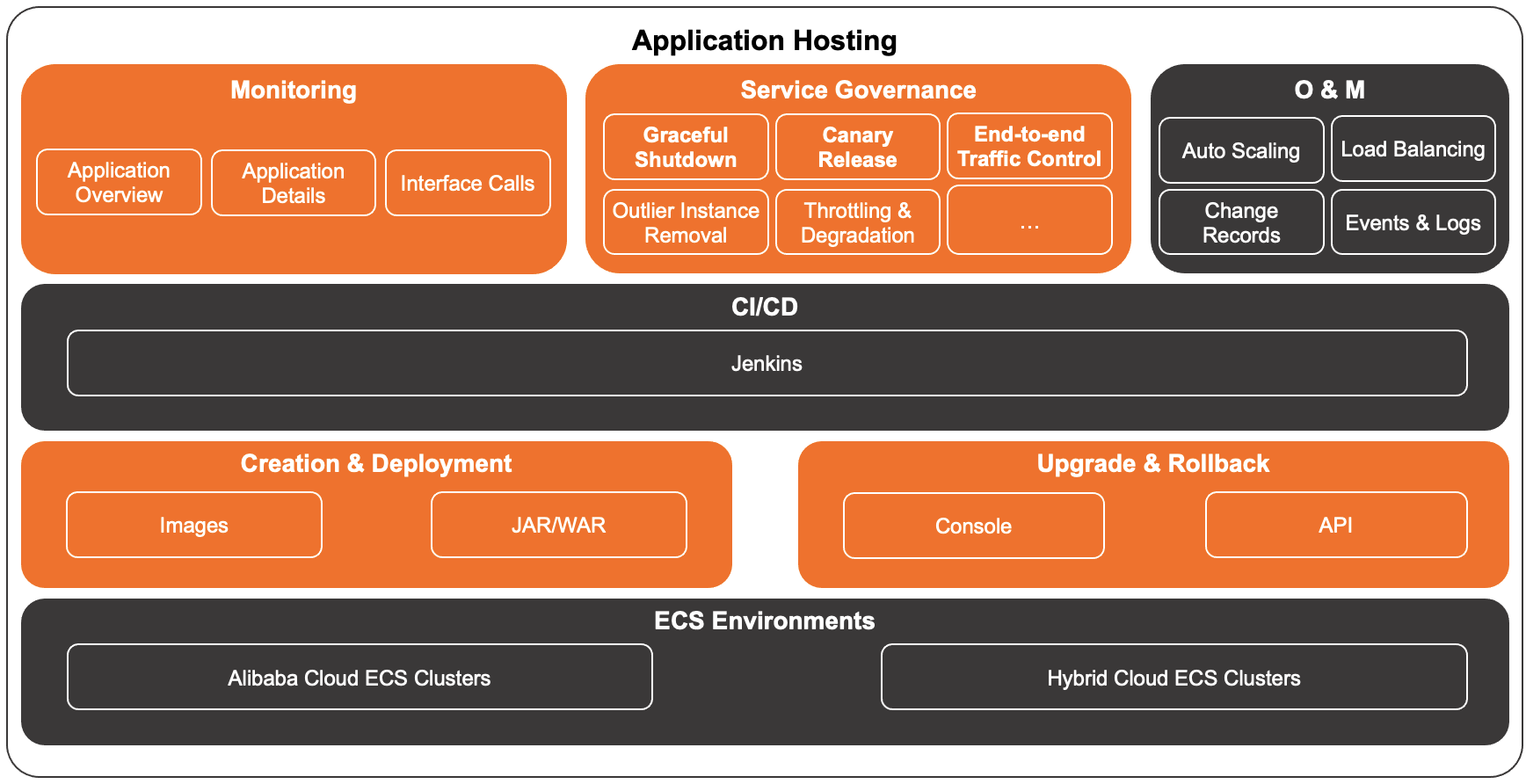Enterprise Distributed Application Service (EDAS) allows you to manage Java applications in Alibaba Cloud Elastic Compute Service (ECS) clusters or hybrid cloud ECS clusters. EDAS provides managed applications with various features, such as lifecycle management, continuous integration and continuous delivery (CI/CD), monitoring, and O&M.
Feature overview

ECS environments
EDAS supports Alibaba Cloud ECS clusters and hybrid cloud ECS clusters.
An Alibaba Cloud ECS cluster is created in a virtual private cloud (VPC). Each cluster consists of multiple ECS instances. For more information, see Create an ECS cluster in the EDAS console.
A hybrid cloud ECS cluster is created in a VPC. Each cluster consists of instances provided by Alibaba Cloud ECS, self-managed data centers, and other cloud service providers. For more information, see Create a hybrid cloud ECS cluster.
Supported applications
EDAS allows you to manage Java microservices such as Spring Cloud, Dubbo, and High-speed Service Framework (HSF) applications in ECS clusters.
Features
ECS environments provide lifecycle management, service governance, monitoring, O&M, and resource management capabilities that are required to manage applications.
Feature | Description |
Resource management | EDAS allows you to manage the following ECS resources:
You can manage the preceding resources. For more information, see Overview. |
First application deployment | You can create and deploy Java applications, such as Spring Cloud, Dubbo, and HSF applications, in ECS clusters (including hybrid cloud ECS clusters) by using JAR and WAR packages after you develop and test the applications. For more information, see Overview. |
Update and rollback | After you create and deploy an application in EDAS, you may need to update the application based on your business requirements.
For more information, see Overview. |
CI/CD | The CI/CD process is required to improve efficiency during the iteration of an application. You can use Jenkins and Apsara Devlops to implement CI/CD on your applications. For more information, see Use Jenkins for CI. |
Application monitoring | EDAS is integrated with Application Real-Time Monitoring Service (ARMS). This allows you to monitor key metrics and configure alerts for an application deployed to EDAS. For more information, see Application overview. |
Application O&M | EDAS provides the following O&M features for applications: |